Dan Sultan interview: how the singer reclaimed his life after a public humiliation
After a drunken public humiliation, one of Australia’s greatest showmen returns clear-eyed and with fire on his tongue, brandishing a powerful set of life-affirming songs.
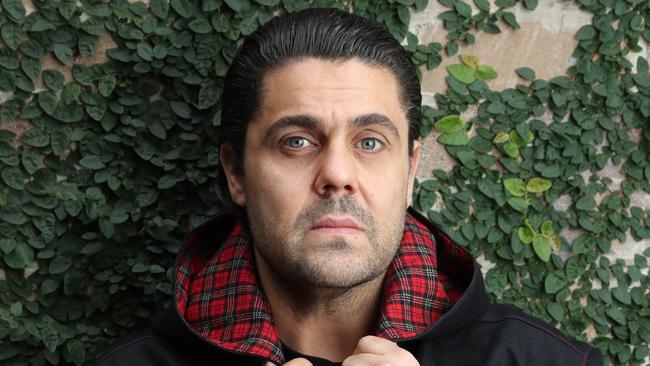
Dan Sultan is stalking the streets of Fitzroy, not far from the front door of his childhood home, where his musical ambitions began to take shape.
Now 39, an acclaimed performer on Australian stages and father to two young children, he has come a long way from the anonymous, guitar-mad kid who spent some of his early years in the 3065 postcode.
Trailing unseen in his wake today is a stirring and sparkling collection of songs ripped from the pages of his own life, and the joys and sorrows therein.
Sultan’s fifth album is a few weeks away from release, and it forms the basis of a long, rambling chat with Review on a Thursday in late July, as we bounce from a busy delicatessen to quiet back streets, before one last drink inside an even quieter pub.
We’re about to cross busy Brunswick St when the singer, songwriter and guitarist is spotted and intercepted by someone who greets him by name, and offers the familiarity of a hug.
“How are ya? You been well, mate?” the man asks, casting his eyes up and down Sultan’s tall, strong frame, clocking his Melbourne musicians’ uniform of black jeans, black coat and black sunglasses; old habits die hard, even as he now calls Sydney home.
The interaction has the appearance of a warm moment between blokes who once waltzed in the same circles but no longer do. When Sultan replies in the affirmative, and returns the question, the man replies, “Not as good as you. Let’s have a beer sometime!”
The happy gent bids a fond farewell, and his retreating form offers a dazzling visage of rhinestones sewn into the back of his vest, as this suburban cowboy shuffles off in search of his next chance saloon.
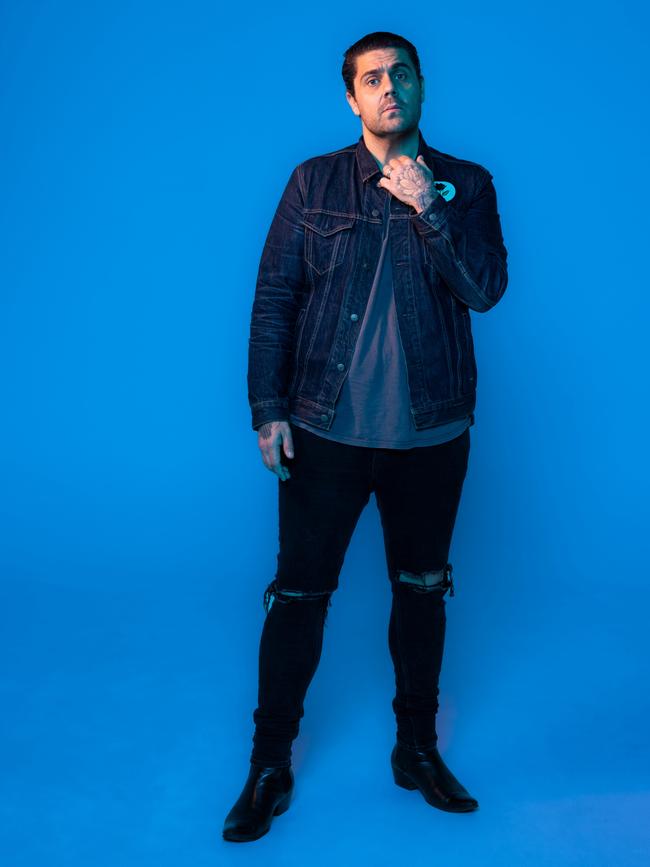
But what might sound like a friendly invitation for a catch-up lager strikes a discordant note that rings in both our ears, prompting a shared look and raising of eyebrows: Sultan is proudly sober, having suffered the acute embarrassment of a drunken public incident five years ago that became the catalyst for a series of life changes, all of them positive.
As we pace away from the bustling strip and turn down a side street, Review asks the four-time ARIA Award-winning artist about his relationship with his song Old Fitzroy, which was released in 2009 and written about a down-on-his-luck character from this very part of the world.
“It’s great,” he replies, as his black boots beat on the footpath. “It’s changed, the older I get. I used to feel like a bit of a fraud when I would sing it. Or not a fraud; self-conscious, at least.”
Built around plaintive acoustic guitar chords that bloom into a rocking full-band arrangement, the three-minute track rises to a stunning crescendo wherein Sultan’s keening voice sings:
I feel the walls are falling down around;
It makes me loathe that town somehow
I’ve been drinking all the wrong things all night
I’ve been thinking about what I’ve got to do to survive this life
A fan favourite then and now, its 1.37 million streams on Spotify alone makes Old Fitzroy one of the most popular songs of Sultan’s career to date. It’s held in high esteem by his peers, too, including fellow singer-songwriter Missy Higgins, who first heard him perform a solo piano version at a Melbourne gig, and later covered it herself.
“At first listen the song seemed like a classic, one of those numbers you’re sure you’ve heard before, but haven’t,” wrote Higgins in an essay accompanying the release of her 2014 covers album, Oz. “My friend and I looked at each other, our mouths gaping open. ‘What was that song? That was incredible!’ I said as I clutched my heart dramatically.”
But across the years, those final two lines began to hit differently for the singer, as he belted them out to conclude the strikingly heart-rending song he co-wrote 15 years ago with Scott Wilson.
“It was a bit close to home, singing that,” he says. “I’d sort of wince internally, and I guess that was an acknowledgment: once you acknowledge that you’ve got a problem, then you have to do something about it.”
“But it’s fine,” he says now, eyes facing forward. “Certainly, singing that line now, I feel a lot stronger.”
Born in 1983 to an Irish Legal Aid lawyer father and an Indigenous mother from the Aranda and Gurindji clans, Sultan and his brother moved around inner-city Melbourne, and also spent time living in Darwin and Cairns.
The North Queensland city is where he landed his first job, working at a small musical instrument store named Fernandez Music – a good gig for a teenager already head over heels in love with all things six-string. Over a hearty bowl of chicken soup inside a packed Alimentari Deli on Fitzroy’s main drag, he lights up at that grateful, eye-opening experience of entering the workforce.
But one of Sultan’s earliest memories is much less savoury: arriving at the family home in Northcote, aged four, and finding a black clipboard leaning against the door displaying a blunt handwritten message: “FUCK OFF ABOS,” it read.
It was the boy’s first encounter of unbridled racism and bigotry, and the fear and terror that such a hateful message can instil in a person. It’s an experience not easily forgotten, nor dismissed.
In October, while publicly sharing this story for the first time, Sultan said to a hushed audience at TEDxCanberra: “It’s something that is with me every day in my life. The fear and terror has been a chain around my neck. And it’s also a fire on my tongue.”
Joel Quartermain remembers the first time he heard this story, on the fifth of five days of songwriting for what would become Sultan’s fifth album: “Dan went, ‘Look, I want to write a song today that I’ve been waiting about 15 years to write, and it hasn’t been the right time. But I think today’s the day’.
“He explained what happened when he was a young child, and had just moved into a new neighbourhood, and the note being left on the front door,” says Quartermain, who produced the album. “I was just like, ‘Whoa, OK, this is extremely heavy. Thanks for sharing that.’ And then we set about writing the song.”
The co-writers landed on the unusually blunt title of Story, a powerful song of proudly proclaiming his identity and his desire to achieve excellence in his life, despite the bigots who’d prefer that he and his fellow Indigenous Australians kept quiet and out of sight. In its second verse, he sings:
Now you broadcast your words
Down your gold microphone
Designed to remind them
That this ain’t my home any more
But I know who I am
My blood to the core
And I’ll tell my children
There’ll be no more notes on the door
“I think it was a real cathartic day for Dan, and it was even quite emotional for myself as well, because he’s my best mate. Talking about those things, and the first time feeling that – it’s just huge,” says Quartermain, who co-founded the Fremantle rock band Eskimo Joe, and now works in Melbourne as a producer and songwriter.
“That’s probably the song that will live the longest of this batch of songs,” he says. “Outside of what date it was released, streaming numbers, and all that kind of stuff – I think this song is bigger than that, and because of what it is, I think it’ll just grow and grow, and become more important.”
It was midway through a lengthy solo tour in support of his fourth album, titled Killer, that Sultan had a night to forget in one of his old stomping grounds.
Long story short: he drank too much and consequently had a shocker while performing for about 500 people at the Tanks Arts Centre in Cairns, a few kilometres north of the music shop where he worked as a teenager.
“I blacked out for a little while, just before the show, and then couldn’t really remember much of the first set,” he recalls. “The second set was pretty good, certainly compared to the first set; I sort of came good a bit. But the damage was done.”
Fans at the June 2018 concert witnessed the singer forgetting lyrics and falling off his piano stool, and social media chatter saw the incident picked up by local newspaper The Cairns Post. Given his profile, that one-night spotfire soon became a national blaze that earned Sultan plenty of media coverage, much of it negative.
In short order, he apologised, cancelled the rest of the tour, holed up in a Brisbane Airport hotel room with his partner and detoxed, then flew home to Melbourne. His dad and his brother took him to a rehab centre, where he attended as a day-patient for four weeks, and reassessed the role of alcohol in his life.
“I think without that humiliation at the time, it’s fairly safe to say that wouldn’t have been the turning point,” he tells Review. “So humiliation, what’s that? You think about shame, and all that kind of stuff, but another thing that doesn’t get associated with it, and perhaps should – and certainly does in this case – is humility. Which can either be a peaceful road, or be a bit bumpy.”
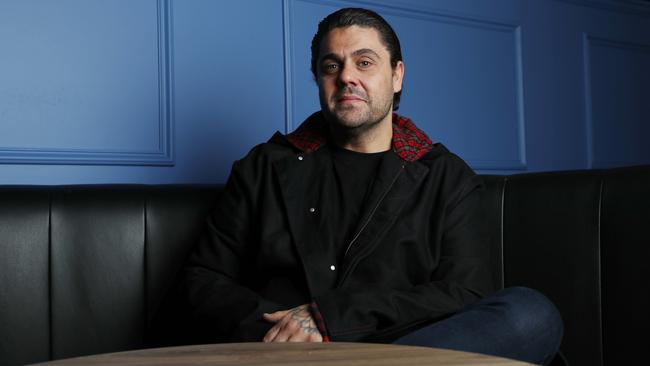
At the time, his shame felt all-consuming. Yet as our run-in with that old drinking buddy in Fitzroy shows, plenty of people have short memories. And like that suburban cowboy, Sultan found that most people are wellwishers who are simply happy to see a friendly, familiar face looking fit and well, particularly if it’s someone with the formidable performance abilities of Sultan – a true quadruple-threat who excels at singing, songwriting, guitar and piano.
With his wife, Bronnie Jane Lee, he has two young children – a daughter named Lena, and their son Wilder. Promotional duties notwithstanding, he’s a hands-on dad at home in Sydney, and those days and nights of excess are so far in the rear view mirror that it almost feels like they happened to someone else.
In the deli, he chugs sparkling water directly from the bottle, and he notes the glasses of wine being drunk at tables nearby. “Not drinking is so much easier than drinking,” he says with a laugh. “I’m happy, and it’s not because I’m sober; I’m sober because I’m happy.”
Painful and necessary as it was, the silver lining to that experience was this: for a songwriter, all of life is up for grabs as material, and it’s up to the individual to determine how to set boundaries around what’s for public consumption and what’s to be kept private.
His upcoming album is fittingly self-titled, given the dominantly personal, autobiographical perspective of its 11 songs. With Quartermain, and collaborators including Chris Collins and Julia Stone – who provides a stunning guest vocal on Fortress – Sultan began writing way back in September 2019, and the first song to emerge was the one of which he remains most proud.
Titled Wait In Love, it’s a song for his wife and the rock in his life, and its lyrics reference that airport hotel room detox, before their first child was born, down to the details of his cold sweat shakes, drawing the curtains and avoiding looking at the newspapers.
“For me, as a listener, it’s amazing,” he says of Wait In Love, beaming as he ticks off its constituent parts. “I think it’s just gorgeous: beautiful melodies, beautiful words, incredible production, arrangements, and completely authentic. I’m really proud.”
Before he picked up a pen or hummed a melody, the seed was planted when he was attending rehab, learning about his alcohol addiction, and coming to terms with the concept of surrender; of letting go of old beliefs that didn’t work.
As we leave the deli and point our boots in the direction of a favourite old watering hole, Sultan says, “I’m not particularly religious or anything like that, but it makes me happy to feel grateful. It’s a nice thing to say that to yourself. In this order, it’s my kids, it’s Bron and it’s myself – because without this arrival to being at peace with myself, I wouldn’t be in a position to be able to be a really beautiful father; a great dad.
“The type of calm confidence and peace that comes with knowing that about yourself, and being a great husband, and a friend, and a father – it’s the most powerful thing,” he says. “They say ‘higher power’ when you’re getting sober. I’m not religious, and I don’t identify with any religion. But my higher power, I realised and started to acknowledge early, was my love.”
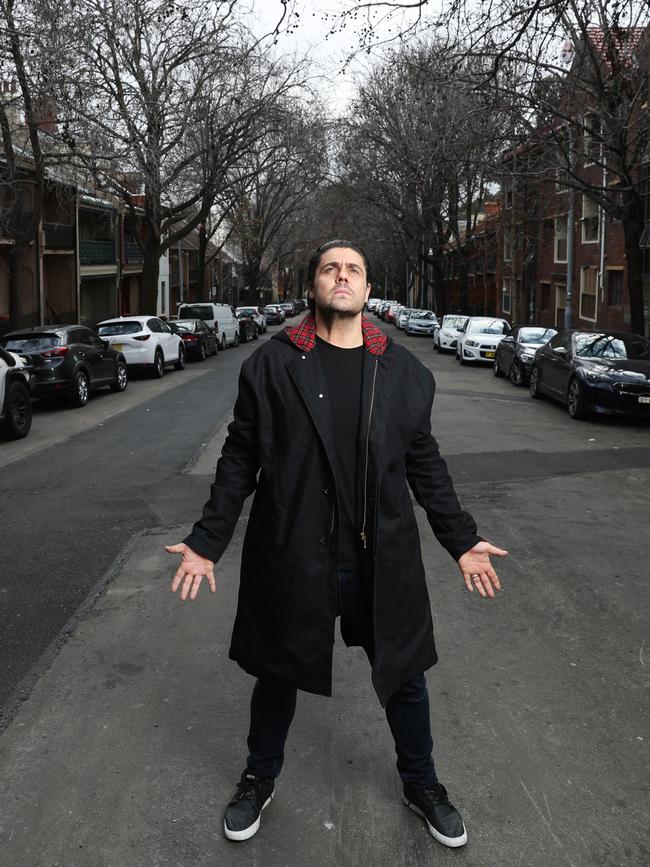
Inside the front bar at the Rose Hotel in Fitzroy, Sultan orders a soda water. There’s enough Australian Rules memorabilia nailed to the walls to make a league-loving Queenslander dizzy; one poster celebrates the Brownlow medallists from 1924 to 1992, while a framed photograph of Phar Lap in full flight gets a guernsey, too.
We talk about Sultan’s voice and how it’s improved since he quit smoking in 2019. “My lower register opened right up, and my falsetto came back,” he says. “The strong, high, ‘head voice’ [notes], I can hit those a lot cleaner now.”
We talk about the recent narrowing of his guitar collection, after he decided to sell about 25 instruments privately in 2020, when many musicians were unclear how they’d continue to earn a living mid-pandemic.
Ahead of taking the new songs on the road, first to the US and Canada, then to Australian shows in September onwards, he says of his playing: “I’m getting to be a much better guitarist. But that’s the deal: if you’re paying attention in life, if you’re engaged, then you’re getting better, aren’t you? You’d want to be.”
The last song written for his fifth album appears as the final track. Titled Lashings, it’s a sparse, stunning piano ballad that centres Sultan’s wonderfully expressive voice, while its narrative succinctly captures the transformation that’s occurred within him across the past five years. Its optimistic closing lyrics are these:
You’re out on the lash, spending all your cash tonight
To lashings of love and now everything is right
Hey, it’s here if you only want it
Time makes clear of the once despondent
Yeah, it’s here if you only want it now.
Dan Sultan’s self-titled album is out now via Liberation Records, ahead of performances in Brisbane (September 30), Sydney (October 13), Melbourne (October 20) and Queenscliff Music Festival (November 26). The writer travelled to Melbourne as a guest of Liberation Records.



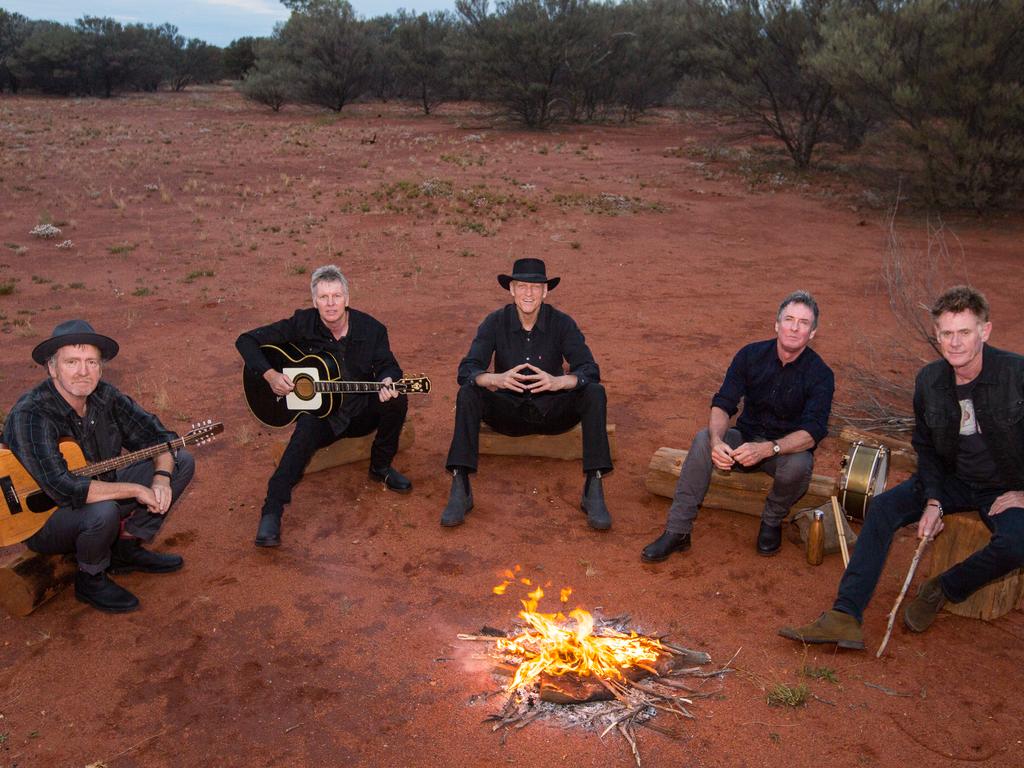

To join the conversation, please log in. Don't have an account? Register
Join the conversation, you are commenting as Logout